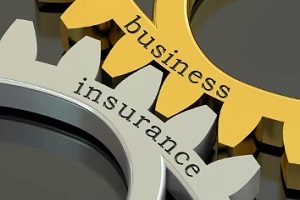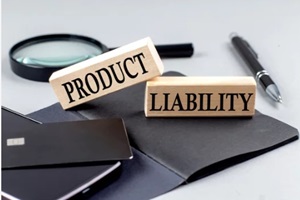 No business is immune to risks. Commercial lines insurance helps protect businesses from potential losses they may otherwise be unable to afford. Policies are tailored for different types of businesses but typically include protection from common accidents, natural disasters, and other perils that could result in bodily injury, property damage, or costly lawsuits.
No business is immune to risks. Commercial lines insurance helps protect businesses from potential losses they may otherwise be unable to afford. Policies are tailored for different types of businesses but typically include protection from common accidents, natural disasters, and other perils that could result in bodily injury, property damage, or costly lawsuits.
What Is Commercial Lines Insurance?
Commercial lines insurance includes casualty and property insurance products geared toward businesses. This differs from personal lines insurance, which covers individuals against financial losses in the event of an unexpected injury, illness, or property loss.
While only some types of commercial lines policies are required by law, not having the necessary insurance can be costly for business owners who encounter property damage, workplace accidents, or legal liabilities.
Types of Commercial Lines Insurance
Commercial lines insurance is personalized to meet the specific needs of businesses. Mitigating the various risks modern companies face can help protect their reputation, revenue, and resources. Some of the most common types of commercial lines insurance policies include:
1. Professional Liability Insurance
Professional liability insurance (PLI) safeguards professionals, such as lawyers, accountants, architects, real estate agents, and physicians.
When claims, such as negligence, misrepresentation, or malpractice are initiated by clients, professional liability insurance can prevent businesses from significant losses. Most PLI policies are claims-made, meaning that coverage is only available for events that occur or claims made while the policy is active.
2. Commercial Property Insurance
Commercial property insurance protects a business’s physical assets from various perils, such as theft, burst pipes, fire, vandalism, storms, and explosions.
This type of coverage safeguards everything inside the building and some outside assets, such as inventory, computers, fencing, landscaping, exterior signs, furniture, important documents, and equipment. Commercial property insurance is a core coverage in a business owner’s policy (BOP).
3. Product Liability Insurance
 Product liability insurance protects businesses from claims that the product they manufactured or sold resulted in property damage or bodily injury.
Product liability insurance protects businesses from claims that the product they manufactured or sold resulted in property damage or bodily injury.
This type of insurance can be found as part of a general liability policy or purchased as a standalone policy. Product liability insurance will typically cover the injured customer’s medical costs, judgments, or settlements against the business, and legal costs and fees to defend the business.
4. Employer Liability Insurance
Employer liability insurance helps cover a business owner’s expenses for a lawsuit resulting from an employee’s work-related illness or injury. Business owners could be required to pay legal costs out-of-pocket without employer liability insurance.
While this type of coverage is often part of a workers’ compensation policy, some business owners may carry a separate policy.
5. Business Interruption Insurance
Business interruption insurance replaces income if a business cannot open temporarily due to a covered loss, such as property damage. With coverage, businesses can make important payments, such as a mortgage, rent, loan payments, payroll, taxes, training costs, relocation costs, and similar expenses.
6. Commercial Auto Insurance
Commercial auto insurance provides business owners with coverage for trucks, cars, vans and other vehicles used to conduct business. This type of insurance covers physical damage and liabilities for situations not covered by personal auto insurance. Typical coverage options found in a commercial vehicle policy typically include:
- Bodily injury liability coverage
- Property damage liability coverage
- Medical payments
- Collision coverage
- Uninsured motorist coverage
- Comprehensive physical damage coverage
7. Inland Marine Insurance
Inland marine insurance covers materials, products, and equipment while they are being transported on land, such as by train or truck. This type of coverage is important for business owners responsible for moving or transporting company property.
Examples of common perils that may be covered by inland marine insurance include hail, fire, theft, wind, and water damage.
8. Data Breach Insurance
In today’s highly digital world, nearly every business faces cyber risks. Data breach insurance can help protect businesses from the risks of using technology. This type of coverage can be useful if:
 A business computer gets a virus that exposes sensitive information or,
A business computer gets a virus that exposes sensitive information or,- A patient or customer sues the business for losing personal health information:
- (PHI) or personally identifiable information (PII), or,
- The business encounters high public relations expenses following a data breach
9. Workers’ Compensation Insurance
Workers’ compensation insurance provides employees who become ill or injured on the job with cash and/or medical benefits. Employers are responsible for paying for this insurance, and employees should not be forced to contribute to the cost of workers’ compensation insurance. Benefits are then paid to the employee by the employer’s insurance carrier.
Request a Quote from Atlas Insurance Agency
Growing a business requires companies to take on many different risks. Atlas Insurance Agency offers comprehensive business policies to protect businesses from a wide range of threats. To learn more about available policies or to request a quote, contact Atlas today.
